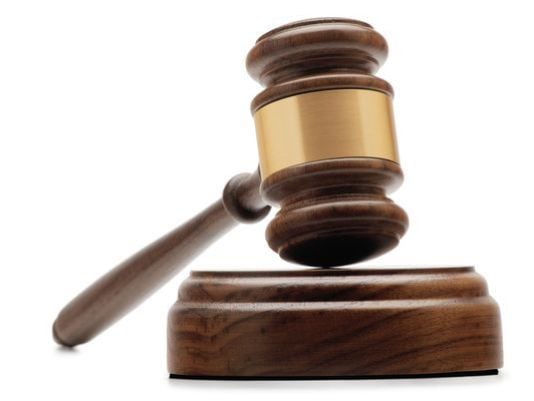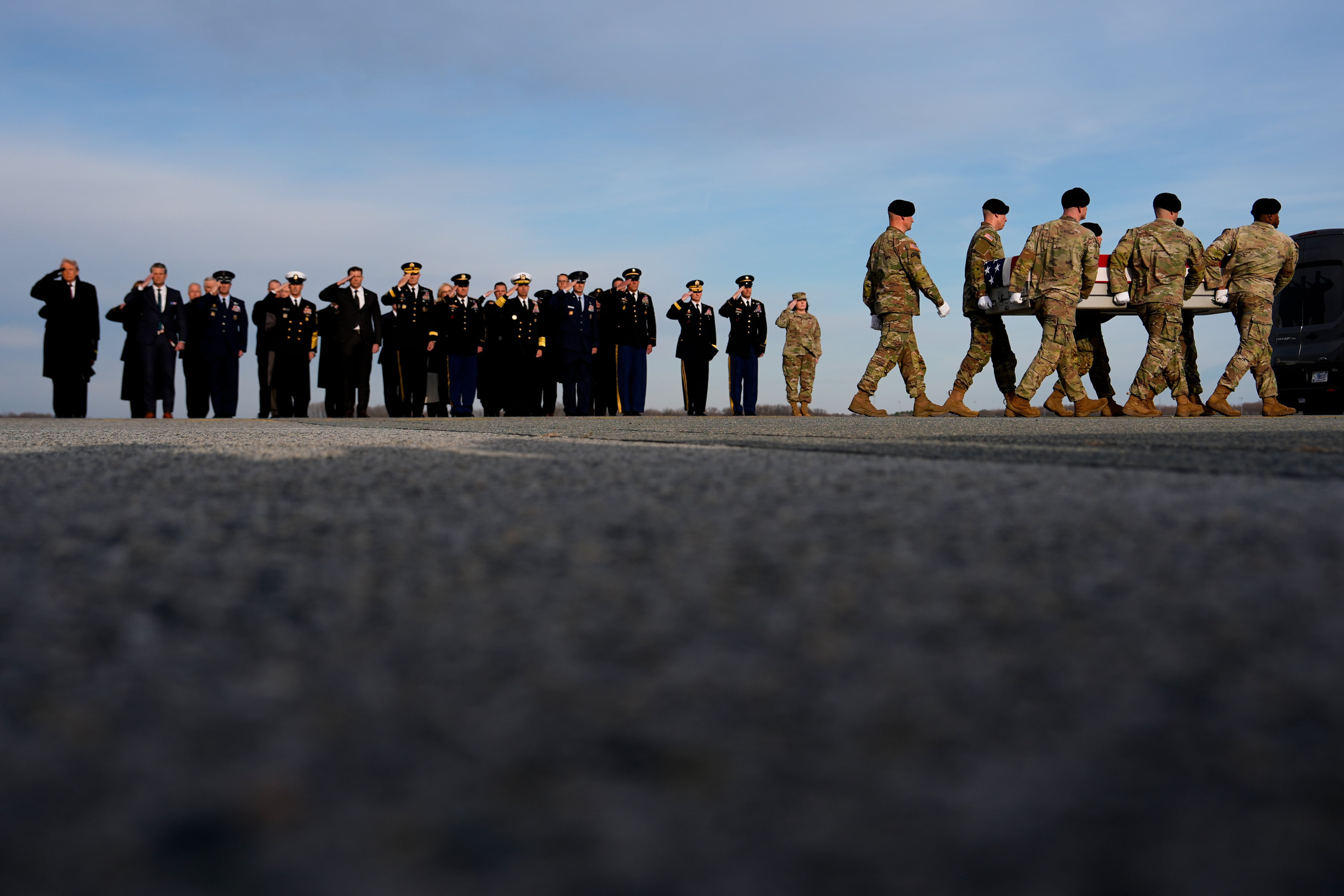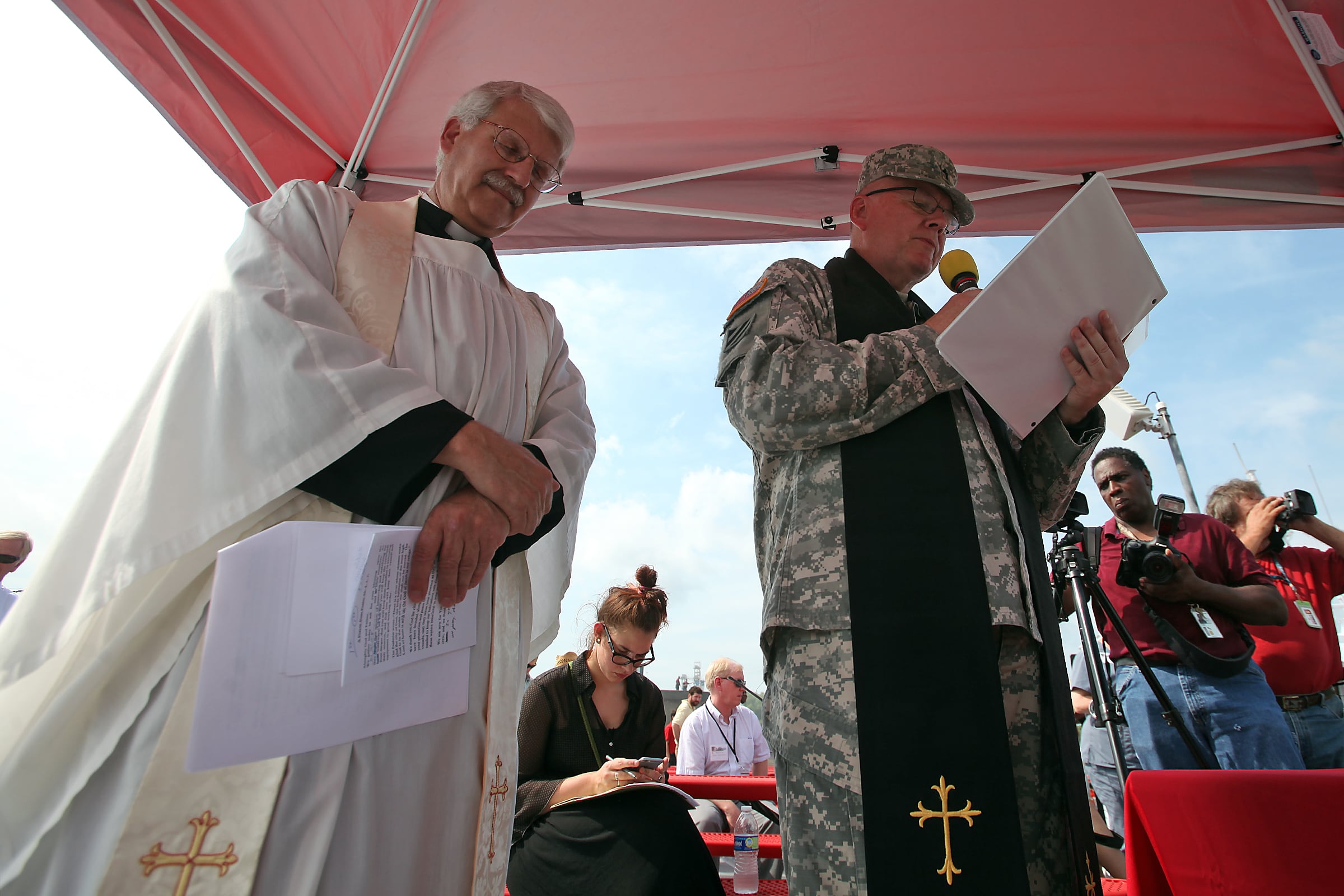JOINT BASE MYER-HENDERSON HALL, Va. — Court proceedings resumed here Tuesday to determine whether a trained military special victims prosecutor will go to court-martial for allegedly sexually assaulting and physically abusing a former girlfriend.
The defense for Capt. Scott Hockenberry — who is facing three counts of sexual assault and three counts of assault consummated by battery — presented evidence in the form of telephone testimony and affidavits describing the judge advocate as peaceful and respectful to women.
Hockenberry is accused of forcing the alleged victim into sexual acts, choking her and injuring her jaw, per a restraining order filed a year ago in Oklahoma, where they were both stationed at Fort Sill.
RELATED

Two former coworkers testified over the phone, while a member of the defense team read four affidavits from Hockenberry’s previous girlfriends and romantic interests.
The character witnesses testified to Hockenberry’s kind nature and held him up as an exemplary officer.
Both the prosecution and the preliminary hearing officer, however, raised doubts about whether Hockenberry’s prior conduct in relationships was relevant to his alleged treatment of the victim.
“I’m not sure that respect for women is a character trait,” said Lt. Col. Jenevieve Murphy, the preliminary hearing officer.
“She is able to defend herself”
The defense then moved to show two videos of the alleged victim boxing and learning self-defense. As a trained martial artist, civilian defense attorney Will Helixon argued, the victim should have been able to fight off any alleged attack by Hockenberry.
“This is evidence of [redacted]’s ability to defend herself,” Helixon said.
Army Times does not identify alleged victims of sexual assault.
Lt. Col. Carol Brewer, the prosecutor, again objected to showing the videos, calling the information redundant, because the victim has said in statements that she is proficient in martial arts.
But, Helixon said, the victim specifically alleges that Hockenberry held a knife to her throat during an altercation — though one of the videos shows her learning how to disarm a knife-wielding attacker.
“It’s one thing to say that she acknowledges that she is able to defend herself,” he said. “It’s another thing to watch her on video, where she’s boxing and engaging in a class where she’s learning this exact thing.”
The alleged victim told investigators that Hockenberry assaulted her multiple times over a three- to four-week period. The preliminary hearing officer should consider the videos to “determine the veracity of the alleged victim’s claims,” Helixon said.
However, Brewer countered, the alleged victim went into great detail in her statements about her martial arts expertise and the reason that she did not try to fight off Hockenberry.
“She said, ‘I don’t know how I continued to stay,’“ Brewer quoted. “She said she could not make herself hit him, because it was different than hitting a stranger.”
Brewer added that the victim did not want to set Hockenberry off by abruptly ending their relationship, and that she was embarrassed that she had let herself become a victim.
Brewer argued that because the alleged victim acknowledged that she could have defended herself but didn’t, that there was no reason to spend time in the hearing watching videos of her practicing martial arts. Brewer added that forcing the attorneys and spectators in the room to watch them amounted to a public spectacle.
“We believe we have the right to show these videos at the [Article] 32, which is an open forum,” Helixon said.
Murphy offered to watch the videos on her own and consider them as possible evidence.
Ultimately, the videos were not shown in the open hearing.
No evidence of trauma
The defense finished out the day with a phone call to Dr. Patrick Montgomery, a Lawton, Oklahoma-area dentist who treated the alleged victim twice in 2016.
In August, he said, she came in complaining of jaw pain.
“Was she upset? No,” he told the attorneys. “She basically seemed to be trying to get information from me that something might be wrong with her.”
Attorneys for the defense said the alleged victim later claimed that she had been backhanded so hard she felt as if her jaw was broken.
Montgomery counseled her to eat a soft diet, apply moist heat to the area and take aspirin, he said.
But he saw no signs of trauma, he added.
Tuesday’s hearing concluded after 9 p.m., after hours spent in a closed hearing to discuss Military Rule of Evidence 412, a major theme of the hearing’s first day back in October.
Attorneys for both sides, as well as the hearing officer, hashed out possible exhibits to determine whether they were allowed under the rule, which prevents prior sexual acts from being considered in sexual assault cases.
In the end, they could not reach a decision on them all, and decided to reconvene the hearing for a third day on Dec. 2, Military District of Washington spokeswoman Shaunteh Kelly told Army Times.
Meghann Myers is the Pentagon bureau chief at Military Times. She covers operations, policy, personnel, leadership and other issues affecting service members.





